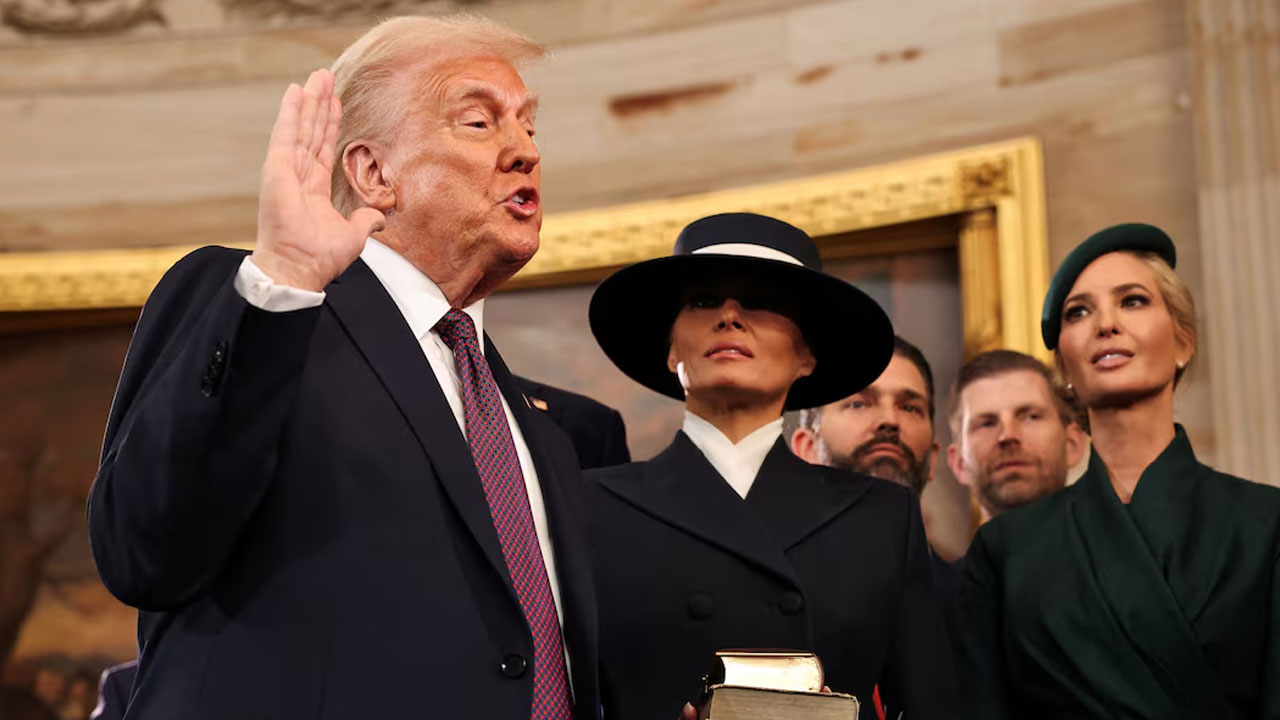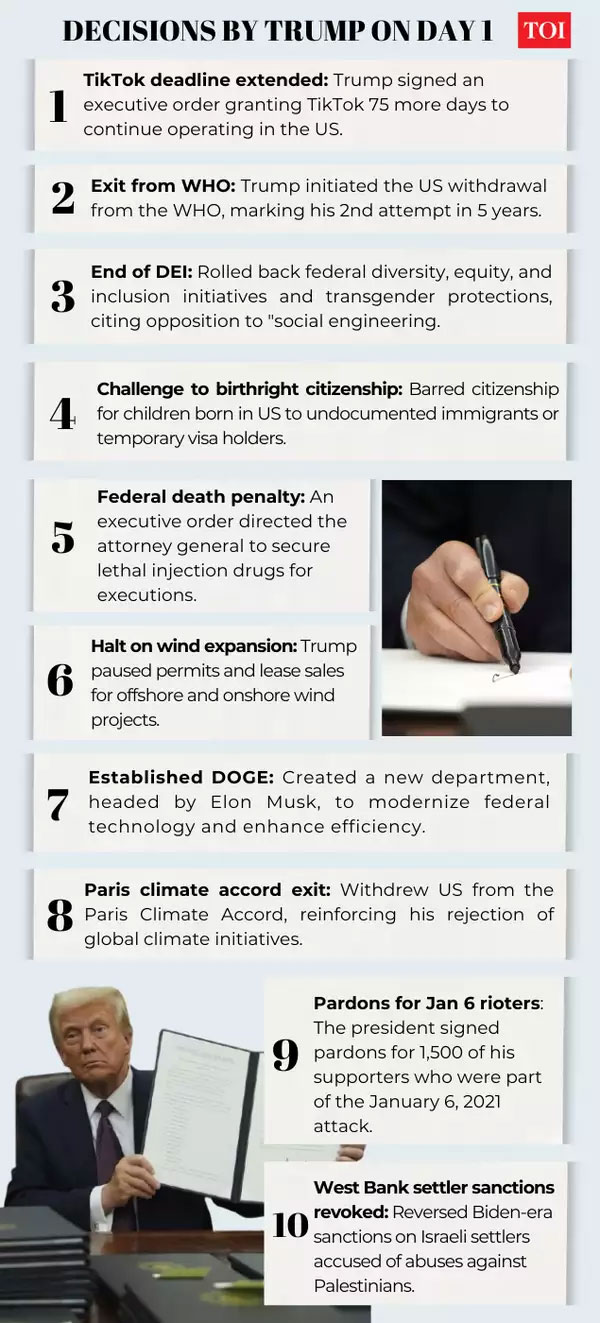
Washington, USA: President Donald Trump’s latest executive order, titled “Protecting the Meaning and Value of American Citizenship,” has sent shockwaves through the Indian immigrant community in the United States. Many Indian families, especially those on work or student visas, were under the impression that Trump’s pledge to end birthright citizenship would only target children of undocumented immigrants. However, the executive order has revealed a broader impact.
New Rules for Birthright Citizenship
The executive order specifies that starting 30 days from its implementation, children born in the U.S. to parents lawfully residing temporarily (such as those on work, dependent, or student visas) will no longer be eligible for automatic citizenship. This change particularly affects Indian families stuck in prolonged green card backlogs. Previously, having a child born in the U.S. provided a pathway for parents to secure citizenship when the child turned 21. Under the new rule, at least one parent must be a U.S. citizen or a green card holder for their child to acquire American citizenship by birth.
A Community in Disbelief
According to a 2022 analysis by Pew Research, approximately 4.8 million Indian Americans live in the U.S., with 34% (1.6 million) born in the country and granted citizenship by birth. The new policy is a significant blow for Indian families relying on this provision as they navigate decades-long immigration processes.
The Times of India previously predicted this outcome, emphasizing the potential challenges for the Indian diaspora. The executive order now makes those concerns a reality, forcing affected families to reassess their futures in the U.S.
Constitutional Debate and Legal Challenges
The executive order hinges on a reinterpretation of the 14th Amendment, which grants citizenship to individuals born in the U.S. who are “subject to the jurisdiction thereof.” Trump’s order argues that this clause excludes children born to parents lawfully present in the U.S. temporarily. Legal experts strongly contest this interpretation.
Cyrus D. Mehta, a New York-based immigration attorney, explained, “Under this order, children of H-1B and H-4 visa holders born in the U.S. will not receive citizenship. This fundamentally challenges long-standing interpretations of the 14th Amendment and will likely escalate to the Supreme Court.”
Greg Siskind, co-founder of an immigration law firm, called the order’s unconstitutionality “astonishing,” adding that the phrase “subject to the jurisdiction thereof” historically excludes only diplomats and enemy occupiers. He predicted legal challenges would likely delay the order’s implementation but acknowledged uncertainty in the outcome.

Ashwin Sharma, another immigration attorney, pointed to historic Supreme Court rulings that granted citizenship to children born in the U.S., regardless of their parent’s immigration status. He emphasized, “This executive order ignores decades of legal precedent, making its long-term viability questionable.”
Implications for Indian Families
The policy change could have profound consequences for Indian immigrants. Those stuck in green card backlogs may lose a critical lifeline, as their U.S.-born children will no longer be able to sponsor them for permanent residency when they turn 21. Immigration advocates and organizations, including the ACLU, have already filed lawsuits challenging the order, asserting it violates constitutional protections.
Gender Dynamics in the EO
Critics have also raised concerns about gender bias in the order, which uses traditional terms like “father” and “mother.” Fiona McEntee, an immigration attorney, pointed out, “The language fails to recognize modern family structures, reflecting an outdated perspective.”
An Uncertain Future
The fate of children born to non-citizen, non-green card holder parents now rests with U.S. courts. While the legal challenges are underway, families affected by the order face an uncertain future, with potentially life-altering consequences for their immigration and citizenship aspirations.





















